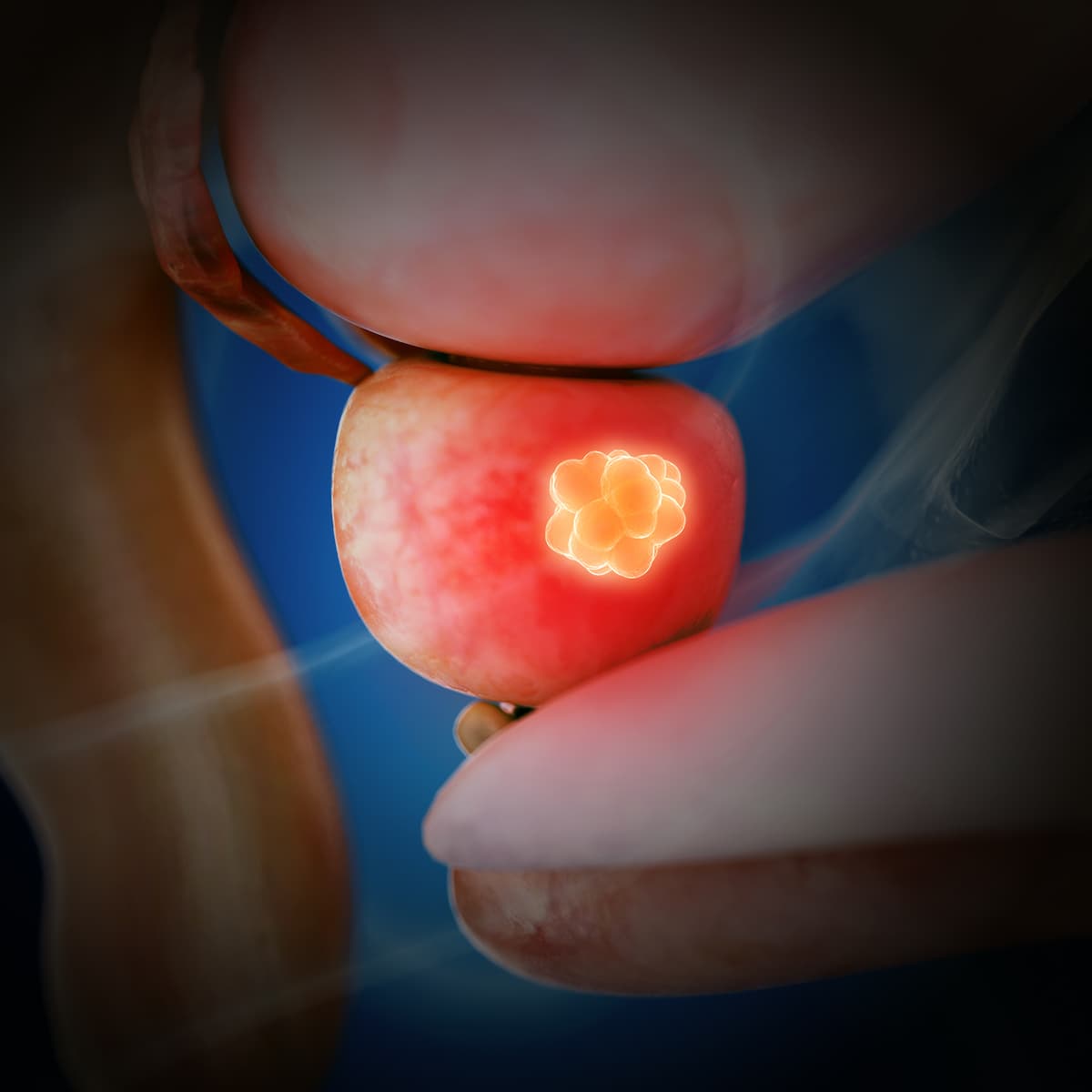MCS-8, a Plant-Derived Drug, Reduces Prostate Cancer Incidence vs Placebo
Treatment with MCS-8 yielded no serious adverse effects among patients at a high risk of developing prostate cancer.
Investigators of the phase 2 trial (NCT02042807) evaluated the efficacy and safety of MCS-8 vs placebo for the prevention of prostate cancer among 700 high-risk individuals in Taiwan.

MCS-8 (PCP), an investigational plant-derived drug, reduced the incidence of prostate cancer and high-risk disease compared with placebo among individuals at a high risk of disease, according to a press release on primary end point statistical analysis findings from a phase 2 trial (NCT02042807).1
Treatment with MCS-8 demonstrated a relative decrease in prostate cancer incidence of 27.3% compared with placebo. Additionally, the incidence of high-grade disease—reflected by a total Gleason score of 7 or higher—was 17.1% lower with MCS-8 vs placebo.
Regarding safety, administration of MCS-8 for 2 years did not correlate with any increases in adverse effect (AE) rates. Moreover, investigators reported no serious AEs among patients. The experimental agent did not negatively affect liver function, kidney function, fasting glucose, or blood pressure.
Patients assigned to receive placebo experienced significant increases in fasting glucose (P = .022). There were no significant differences in triglycerides, low-density lipoprotein (LDL), and high-density lipoprotein (HDL) between before and after treatment in the placebo arm.
Favorable lipid-modulating trends occurred among patients after 2 years of MCS-8 therapy vs baseline. These trends included decreased triglycerides (P = .05), significant decreases in LDL (P = .018), and significant increases in HDL (P = .003).
“These positive results affirm the potential of MCS-8 (PCP) as a compelling candidate for prostate cancer prevention,” Fu-Feng Kuo, chief executive officer and chair at Jyong Biotech, the developer of MCS-8, stated in the press release.1 “With good safety and efficacy signals, we are now preparing for the next stage of development. Our objective is to initiate a global phase 3 trial, in collaboration with international pharmaceutical companies, to further validate its clinical potential.”
According to the press release, findings from the phase 2 study may support future clinical trials in lipid management, atherosclerosis, and cardiovascular diseases with MCS-8. The novel agent is currently an investigational candidate that has not received approval for commercial use in any treatment setting.
Investigators of the phase 2 trial evaluated the efficacy and safety of MCS-8 vs placebo for the prevention of prostate cancer among 700 high-risk individuals in Taiwan. The trial took place across more than 20 hospitals in Taiwan with the help of more than 130 urologists.
Patients were randomly assigned to receive MCS-8 soft capsules at 15 mg or 30 mg per day or matched placebo.2 The trial’s primary end point is the cumulative biopsy-detectable prostate cancer rate at 24 months after initiating study therapy. The incidence of high-grade prostate cancer based on maximum Gleason score was a secondary efficacy end point.
Patients 50 to 75 years old who are at a high risk of developing prostate cancer were eligible for enrollment on the study. Being able to understand and willing to comply with study procedures after signing an informed consent form was another requirement for enrollment.
Patients who were receiving long-term hormonal agents affecting the normal physiology of sex hormone function or had a prostate-specific antigen exceeding 10.0 ng/ml were ineligible for enrollment on the trial. Those with a history of prostate cancer or receipt of another investigational agent in the past 30 days were also unable to enroll.
In September 2025, developers announced the completion of patient enrollment for the phase 2 trial.3
“We are pleased to have reached this key milestone in the MCS‑8 development program. We have enrolled over 700 [patients] in this clinical trial, and despite the challenging times of the COVID-19 pandemic, we have successfully achieved this milestone and the progress has been ahead of our expectations,” Kuo stated in a press release on completing patient enrollment.3
References
- Jyong Biotech announces completion of primary endpoint statistical analysis for phase II clinical trial of MCS-8 with positive outcomes. News release. Jyong Biotech Ltd. November 20, 2025. Accessed November 21, 2025. https://tinyurl.com/ms7suey5
- To evaluate the effect of MCS® in prostate cancer prevention (MCS-8). ClinicalTrials.gov. Updated June 13, 2024. Accessed November 21, 2025. https://tinyurl.com/4esmfdst
- Jyong Biotech announces completion of patient enrollment of over 700 subjects in phase II clinical trial of MCS‑8 for prostate cancer prevention. News release. Jyong Biotech Ltd. September 16, 2025. Accessed November 21, 2025. https://tinyurl.com/37z5havj
Prolaris in Practice: Guiding ADT Benefits, Clinical Application, and Expert Insights From ACRO 2025
April 15th 2025Steven E. Finkelstein, MD, DABR, FACRO discuses how Prolaris distinguishes itself from other genomic biomarker platforms by providing uniquely actionable clinical information that quantifies the absolute benefit of androgen deprivation therapy when added to radiation therapy, offering clinicians a more precise tool for personalizing prostate cancer treatment strategies.